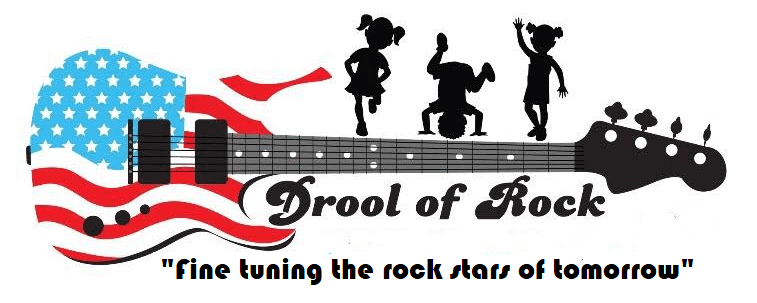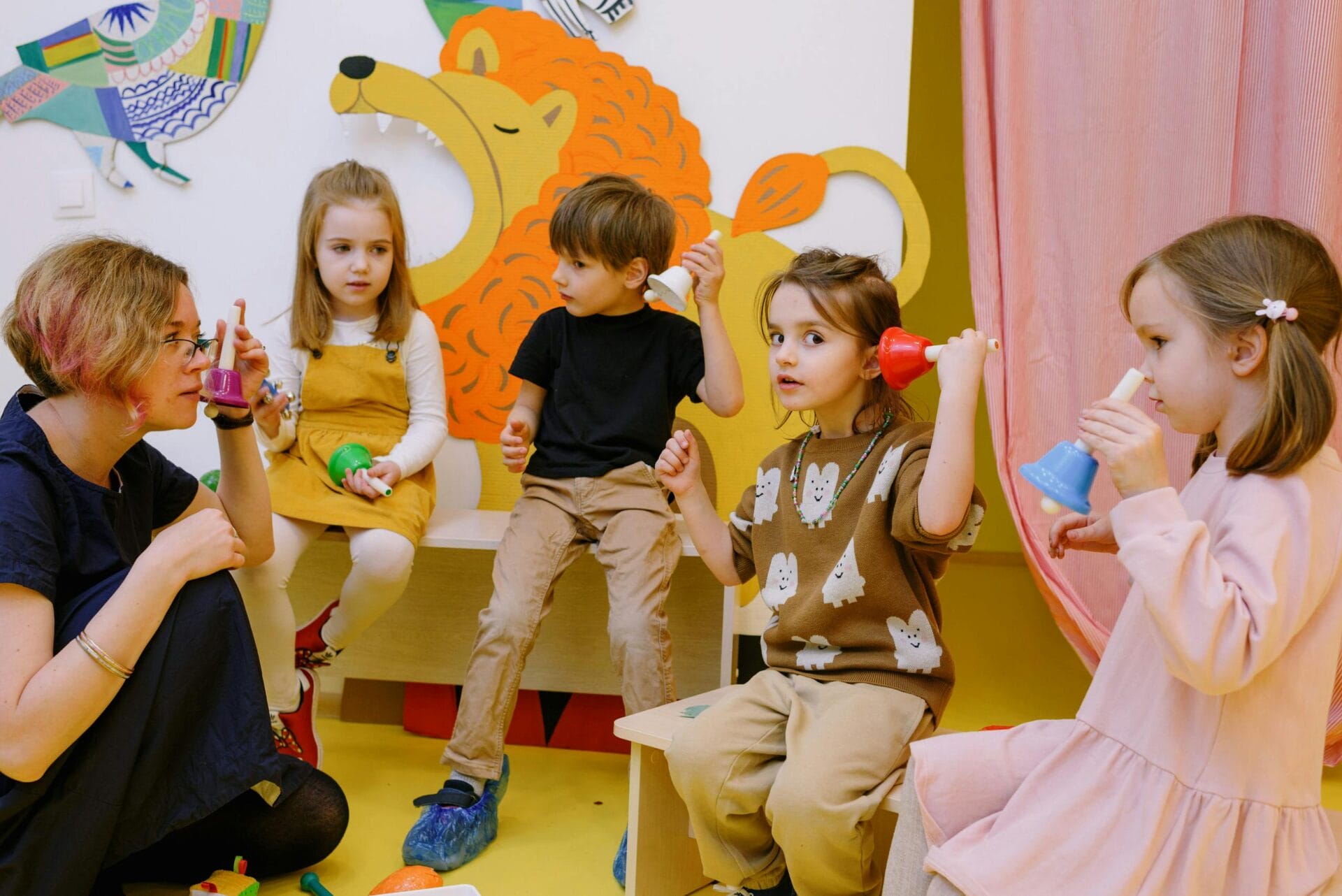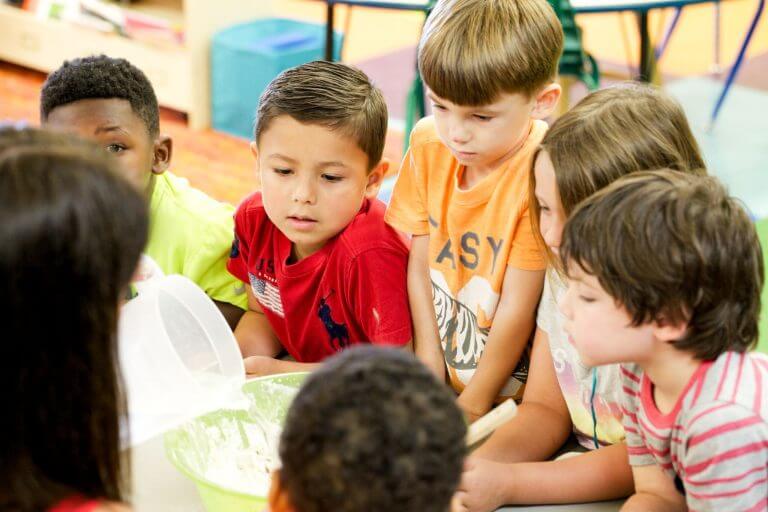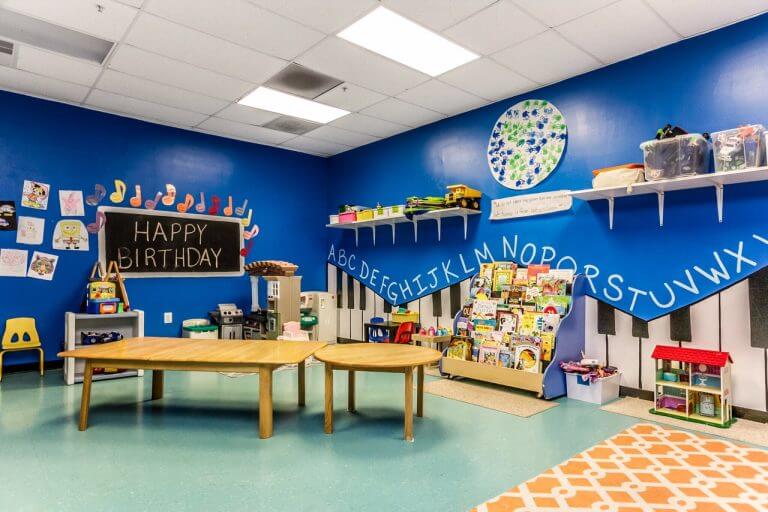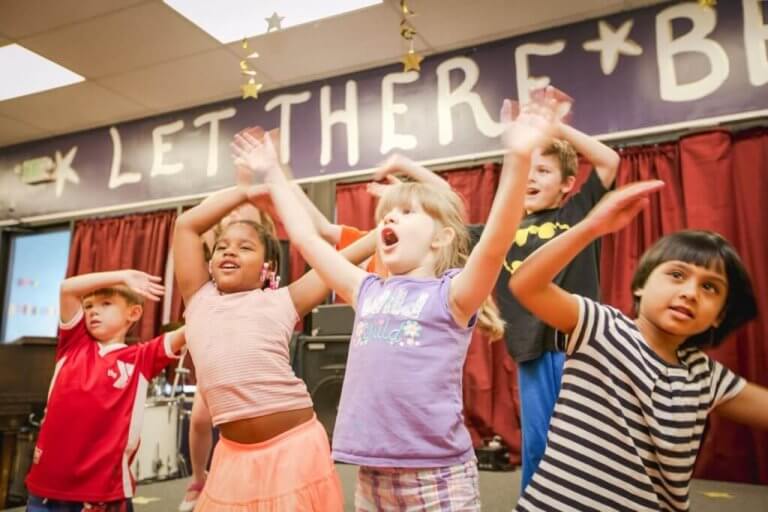Thinking about music classes for your child and feeling a little unsure about when or how to start? You’re not alone. Parents often wonder at what age music classes make sense, whether babies are too young, and if toddlers truly benefit from structured music time. The good news is this: it’s never too early to introduce your little one to the joys of music, and there are real, research-backed benefits at every stage of early development.
At Drool of Rock, we see our tiniest rockstars thrive with music from just 6 weeks old, and we’re here to help you feel confident about taking the first step when you and your child are ready
Why Start Music Early?
You don’t need to hope your baby becomes the next Beethoven to give them a big head start with music. Music education is about so much more than learning to play an instrument. It’s a playful, joyful way to boost all areas of a child’s development, from language to social skills. Studies show that engaging with music early on can:
- Improve memory and attention span
- Build stronger language and communication abilities
- Strengthen fine and gross motor skills
- Foster self-confidence and creativity
- Support emotional regulation and social interaction
Even babies just a few weeks old are soaking up the rhythms and melodies of the world around them. Singing lullabies, clapping hands, or swaying gently to a tune begins shaping their growing brains, even before they can sit, crawl, or talk.
What’s the Best Age for Music Classes?
One of the biggest myths is that you need to wait until your toddler is out of diapers, can talk, or dances on their own before starting music education. In reality, children are natural music-makers right from the start.
- Infants (6 weeks to 12 months): Babies delight in gentle music, rhythmic rocking, and lullabies. Repetitive melody and movement strengthen the bond between you and your baby, and lay the foundation for recognizing words, sounds, and patterns.
- Toddlers (1–3 years): This age is full of wiggles, giggles, and growing coordination. Music classes for toddlers encourage exploring instruments, singing, and dancing, which bolster both motor skills and the confidence to express themselves.
- Preschoolers (3–5 years): Preschool kids crave creativity and social time. Group music classes build on those basics, combining rhythm games, memory songs, and playful group movement to get them ready for kindergarten—and beyond.
So, when is the right time to enroll your child in music classes? Simply put, the best time is when you and your child are comfortable. At Drool of Rock, we start with children as young as 6 weeks old. Our programs are built around what’s developmentally appropriate at each stage, with no pressure for your child to perform or reach milestones, just joyful learning through music and movement.
Is Music Really OK For Babies and Toddlers?
Absolutely! Babies and toddlers are actually wired to respond to music. Through music, even tiny children develop focus, hand-eye coordination, and social awareness much earlier than you might expect. Playful instrument exploration, gentle singing circles, and movement games are tailored for safety and fun, whether your child is just mastering tummy time or starting to run around.
In our music classes for infants and toddlers, we focus on:
- Rhythmic movement (rocking, swaying, gentle bouncing)
- Simple instrument play (shakers, drums, bells)
- Repetitive, engaging songs
- Sensory exploration and group games
There’s zero expectation for babies or toddlers to memorize lyrics or keep a beat. Instead, we lean into joyful participation. Every smile, clapped hand, or wiggle counts as a step in their musical (and overall) development.
Tips For Choosing and Starting Music Classes
Feeling ready but not sure where to begin? Here are a few things to consider as you look for the right fit:
- Look for expert, nurturing teachers. Music for little ones isn’t about strict instruction. Professional, enthusiastic teachers who understand child development create welcoming classes where every child can thrive.
- Prioritize play and movement. Structured, playful lessons are best for young children, inviting them into music at their own pace and style.
- Consider program safety and environment. Ask about facility cleanliness, staff qualifications, and any safety protocols. Your peace of mind matters.
- Join a class that fits your schedule and your child’s needs. Some children love morning music, others prefer a later start. Find a routine you both enjoy.
- Enjoy the process! Music is about connection, expression, and fun for both you and your child. There’s no wrong age or way to get started.
If you’re searching for a nurturing music program in the Baltimore County area, explore our offerings at both Cockeysville and Owings Mills. Our programs include dedicated music classes for infants and toddlers, which support every stage of growth and encourage families to join in the fun, too.
Drool of Rock: Welcoming Little Musicians From Day One
At Drool of Rock, we understand the power of music to unlock potential at every age. Our professional musicians and loving educators design each day to help babies, toddlers, and preschoolers thrive emotionally, socially, and cognitively. Whether your little one is brand new to the world or ready for preschool, they’ll find a safe, welcoming space to explore music, move their bodies, and grow their confidence.
Curious to see what a day of music-filled learning looks like? Dive into how our Owings Mills daycare uses music enrichment classes to weave fun, growth, and joyful expression into every moment.
Final Notes: Let the Music Begin!
You don’t have to wait for a certain milestone to introduce your child to music. Babies, toddlers, and preschoolers all benefit in different and wonderful ways. Trust your instincts, find a nurturing program, and get ready to make happy musical memories together.
Ready to share the joy of music with your little one? We’d love to welcome you to our family of rockstars. Reach out to learn more or schedule a visit!
